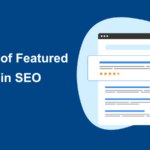In today’s digital age, having a solid online presence is crucial for the success of any small business. Search engine optimization (SEO) plays a critical role in ensuring that your business gets noticed by potential users on different search engines like Google, Bing, and Yahoo. However, if you’re a newbie in the field, SEO can be complex. For small businesses with limited resources, it’s crucial to focus on the key factors that can make a significant impact. This article will explore the essential elements of effective small business SEO, helping you drive organic traffic, improve visibility, and ultimately grow your business online.
Keyword Research and Analysis
Keyword research serves as the foundation of any successful SEO strategy. It involves detecting the right keywords and phrases that potential customers likely use when they search for products or services online. This step is particularly crucial for small businesses, as it ensures you’re targeting the right audience.
To conduct adequate keyword research, follow the given steps:
- Use Keyword Research Tools: Tools like Google Keyword Planner, SEMrush, and Moz Keyword Explorer can help you identify relevant keywords and assess their search volumes and competition levels.
- Competitor Analysis: Always do a thorough analysis of your competitors’ websites to learn which keywords they are targeting. It can provide valuable insights into what’s working in your industry.
- Long-Tail Keywords: Consider targeting long-tail keywords (more extended, specific phrases) and broad keywords. Typically, long-tail keywords have less competition and can attract highly targeted traffic.
- Keyword Trends and Seasonality: Keep an eye on keyword trends and seasonality within your industry. Specific keywords may become more or less popular at different times of the year, and adjusting your strategy accordingly can help you capitalize on these trends.
- User Search Behavior: Understand how your target audience searches for information online. Are they using voice search, mobile devices, or specific search queries? Customize your SEO strategy to align with these behaviors.
On-Page SEO Optimization
Once you’ve identified your target keywords, it’s time to optimize your website’s on-page elements to rank better in search engine results pages (SERPs). Here are some critical on-page SEO factors to consider:
- Title Tags: Craft compelling and relevant title tags for each page on your website, incorporating your target keywords.
- Meta Descriptions: Write informative and enticing meta descriptions for your pages, as they often appear in search results and can influence click-through rates.
- Header Tags: Use header tags such as H1, H2, and H3 to give your content a proper structure and make it more readable. Include keywords wherever relevant.
- Keyword Placement: Naturally incorporate your target keywords throughout the content, including in the headings, first paragraph, and body text. However, ensure to avoid keyword stuffing, as it can harm your SERP ranking.
- Image Optimization: Optimize images with descriptive file names and alt tags with relevant keywords.
- Call-to-Action (CTA) Optimization: If you want your customers to take certain actions, like making a purchase or signing up for a newsletter, make your CTAs clear and compelling. Use action-oriented language and strategically place CTAs throughout your site.
- 404 Error Pages: Create custom 404 error pages that guide users to your main website or suggest alternative content. This can help retain visitors who may have encountered a broken link.
Quality Content Creation
High-quality, relevant content is a cornerstone of SEO success. Content attracts visitors, keeps them engaged, and encourages them to explore your website further. When creating content for your small business website, keep the following things in mind:
- Focus on User Intent: Understand the intent behind your target keywords. Are users looking for information, products, or solutions? Tailor your content to match their intent.
- Provide Value: Offer valuable, informative, and unique content that addresses your audience’s needs and questions. This can include blog posts, how-to guides, videos, and more.
- Regular Updates: Keep your content fresh and up to date. Google tends to favor websites that regularly publish new, relevant content.
- Mobile Optimization: Ensure your content is mobile-friendly, as Google prefers mobile-optimized websites in its rankings.
Website Speed and Mobile Friendliness
User experience is an important factor in SEO. If your website loads slowly or is not well-optimized for mobile devices, it can lead to high bounce rates and lower rankings. Here’s what you should consider:
- Page Speed: Use tools like Google PageSpeed Insights or GTmetrix to analyze your website’s speed. Optimize images, leverage browser caching, and minimize server response times to improve load.
- Mobile Optimization: You must ensure that your website is responsive and can adapt to varied screen sizes. Google’s mobile-first indexing means that mobile-friendliness is crucial for SEO.
- Responsive Design: Adopt a responsive web design approach to ensure your website adapts seamlessly to various screen sizes and devices. Google usually prioritizes mobile-friendly websites in its search rankings.
- Mobile-First Indexing: Be aware that Google primarily uses the mobile version of your webpage to index and rank it. Hence, ensure your mobile site provides the same content and features as the desktop version.
- Mobile Page Speed: Mobile users often have slower internet connections than desktop users. Optimize your mobile website for speed by reducing image sizes and minimizing the use of large media files.
Local SEO
Local SEO is of utmost importance for small businesses because it helps you connect with local customers who are looking for products or services related to your business in their respective areas. To improve your local SEO, try the following ways:
- Google My Business (GMB): Claim and optimize your Google My Business listing with accurate business information, including your address, phone number, and hours of operation.
- Local Citations: Ensure consistent NAP (Name, Address, Phone number) information across online directories and listings.
- Customer Reviews: Kindly ask your satisfied customers to leave genuine reviews on different platforms like Google, Yelp, and Facebook. Positive reviews can boost your local rankings.
- Local Content: Create content that resonates with your local audience. This can include local event coverage, community involvement, and neighborhood-specific information.
Link Building
Building high-quality backlinks to your webpage is a crucial off-page SEO strategy. Backlinks are like votes of confidence from other renowned websites, signaling search engines that your content is authoritative and trustworthy. Here’s how to approach link building:
- High-Quality Content: Create exceptional content that naturally attracts backlinks from other websites in your industry.
- Guest Posting: Write guest posts for reputable websites in your niche, including a link to your site in your author bio.
- Broken Link Building: Look for broken links on other websites and offer your content as a replacement.
- Social Media Promotion: Share the content posted on your website on different social media channels to boost its visibility and encourage others to link to it.
- Guest Blogging: Contribute high-quality guest posts to authoritative websites in your niche. Include a link to your website in your bio or within the content. Guest blogging builds backlinks and establishes your expertise in your industry.
- Broken Link Building: Identify broken or outdated links related to your content on other websites. Reach out to the website’s owner or webmaster, suggesting your content as a replacement. This approach provides a valuable solution while earning you a backlink.
- Content Marketing: Create outstanding, shareable content that naturally attracts backlinks. Excellent options include infographics, comprehensive guides, research studies, and interactive tools. Promote this content through outreach to industry influencers and relevant websites.
Conclusion
In conclusion, effective small business SEO demands meticulous attention to various key factors. By delivering valuable content, building authoritative backlinks, and adapting to evolving SEO trends, your small business can carve a formidable online presence, attract the right audience, and ultimately thrive in the competitive digital landscape. Remember, SEO is an ongoing journey, and staying committed to these factors will drive organic growth, fostering long-term success for your small business.









